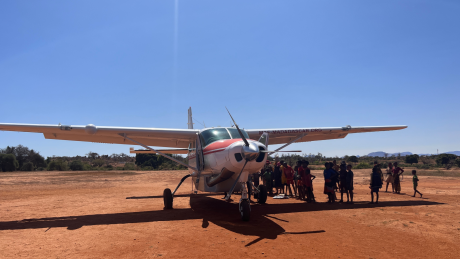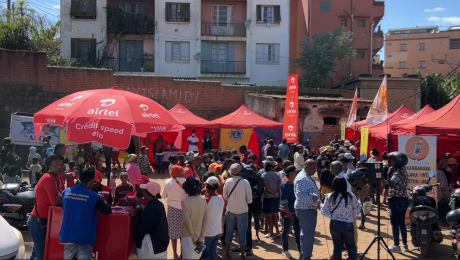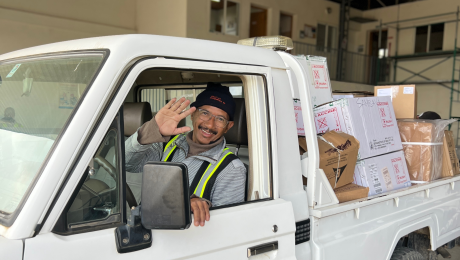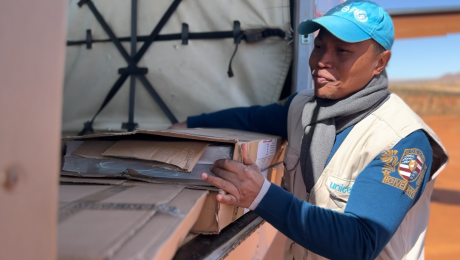
In the face of a concerning surge in polio cases, UNICEF called upon MAF to fly polio vaccinations all around Madagascar, including its most distant and isolated areas, raising awareness of the disease and vaccine and bridging vaccination gaps within the population.
In recent years, Madagascar has witnessed a concerning surge in polio cases. The underlying cause of this increase is largely attributed to the inadequate number of children who have received the polio vaccine. “Polio is primarily transmitted through contact with contaminated faecal matter,” said Pascal, registered nurse based in Antananarivo. “It’s very important that everyone, both children and adults, gets vaccinated against this disease.” Polio is a viral infection that primarily targets the nervous system, has the potential to cause lifelong paralysis and can even be fatal, with children being particularly vulnerable.
It’s very important that everyone, both children and adults, gets vaccinated against this disease.
A collaborative effort
The Municipality of Antananarivo (CUA) is actively focused on raising awareness and administering vaccines within the capital. Simultaneously, UNICEF and the Ministry of Public Health took important actions to stop the disease from spreading in the rest of Madagascar. Collaboratively, they orchestrated nationwide vaccination campaigns. These campaigns were designed not only to bridge the vaccination gaps that had emerged but also to enhance the overall health and well-being of the Malagasy public.

Rapid polio vaccine delivery
In pursuit of this mission, UNICEF established a partnership with MAF Madagascar to transport polio vaccines to various regions across the country. This collaboration facilitated rapid and efficient vaccine delivery. “They booked us for two full weeks of vaccine flights all around Madagascar,” said Fanamperana, Ground Ops Assistant, “we even do flights on Saturdays and Sundays. Our ground ops team would even load the aircraft late in the evening to allow the aircraft to leave early the next day.” This collective endeavour has played a vital role in ensuring that this critical vaccine reaches the most isolated areas.

“I’m happy that so many different organisations are taking the initiative to organise vaccination campaigns and raise awareness. I didn’t know that adults also had to get vaccinated, I thought it was only children,” shared Jaona*, a Malagasy citizen who recently received his first dose of the polio vaccine, “It’s clear that not everyone in Madagascar is aware of the effects of the disease because access to basic healthcare is difficult, especially outside of Antananarivo. So, it’s very important to share this information and the vaccines with everyone.”
I think it’s great that MAF Madagascar is playing this role in transporting vaccines all around the island.
Polio flights in numbers
In total, MAF Madagascar played a pivotal role, executing nine flights to reach 19 different destinations across Madagascar. Pilors Patrick Keller and Wouter Nagel, collectively transported a significant 7500 kilograms of vaccines and supplies during these vaccination missions, accumulating a combined flight time of 44 hours. These flights, carrying life-saving vaccines to the farthest corners of the island, have been instrumental in raising awareness and ensuring more people receive the crucial vaccinations they need.

The significance of teamwork
It is through these partnerships that we can best bring real change to Madagascar’s remote communities. This collective endeavour has not only helped protect the health of Madagascar’s population but also underscores the significance of teamwork and cooperation in tackling public health challenges. “I think it’s great that MAF Madagascar is playing this role in transporting vaccines all around the island,” said Fanamperana, “we really do bring help, hope, and healing to the isolated communities here.”
* At the request of the individual for anonymity, we have changed their name in this article